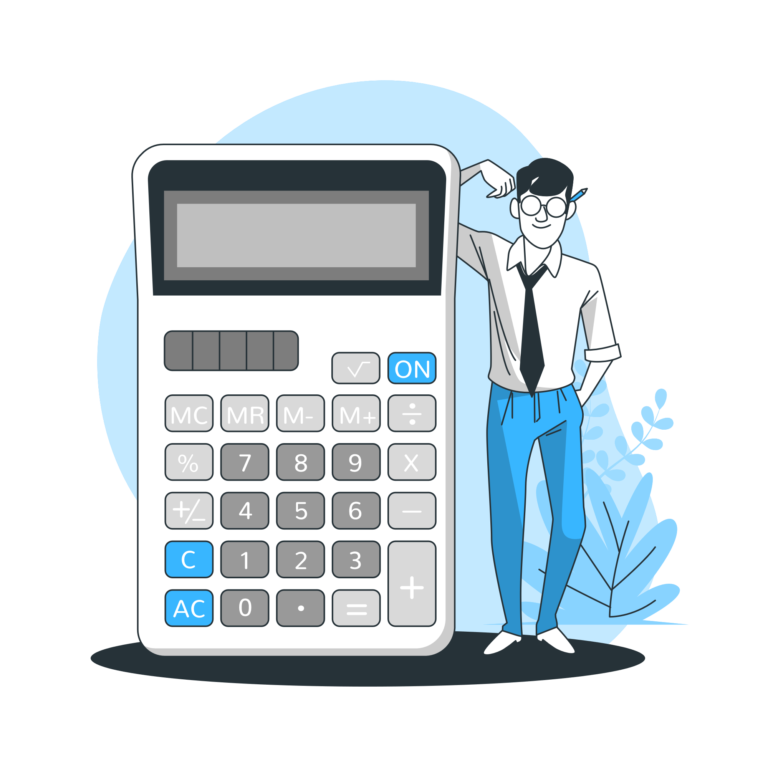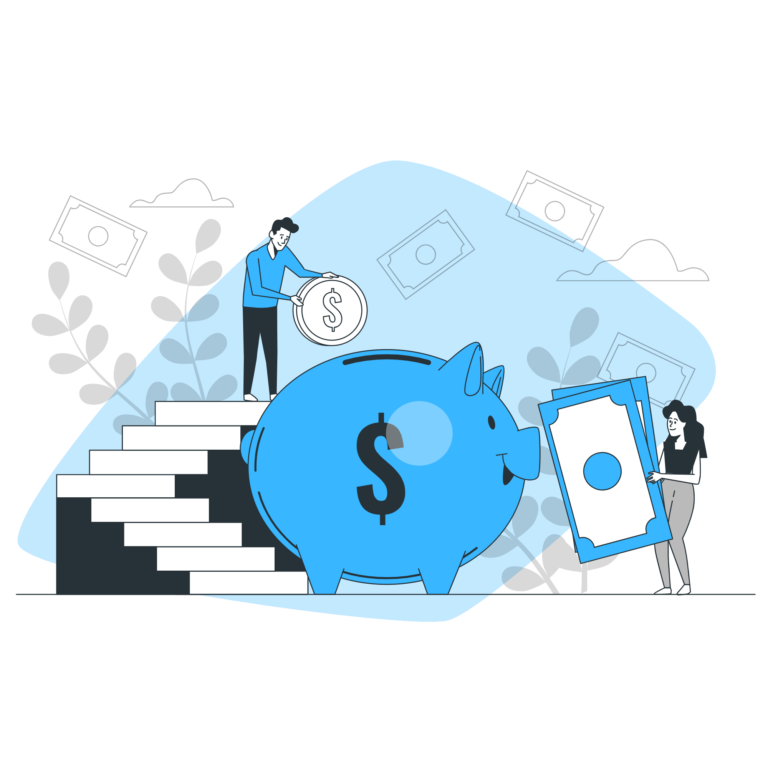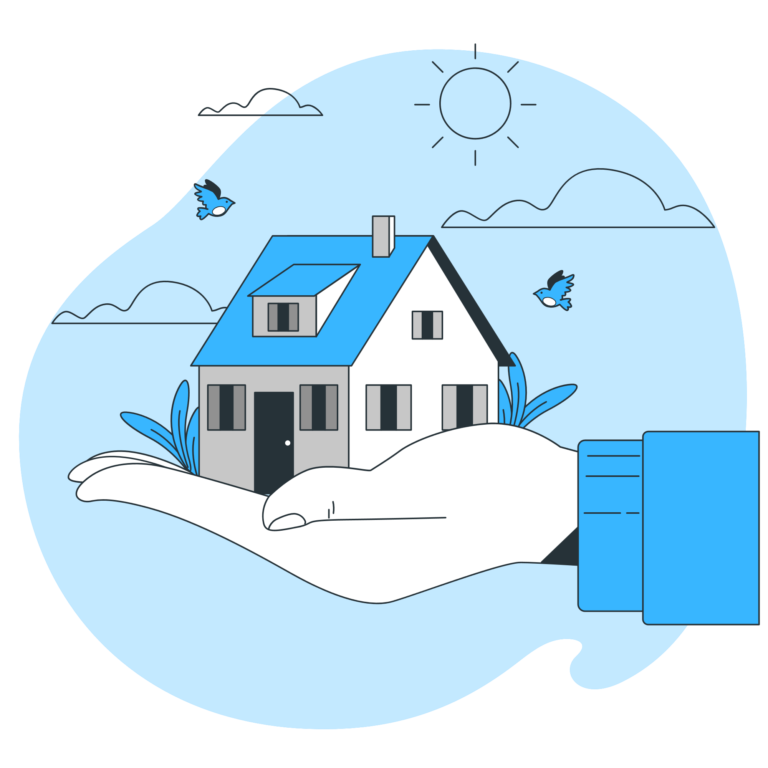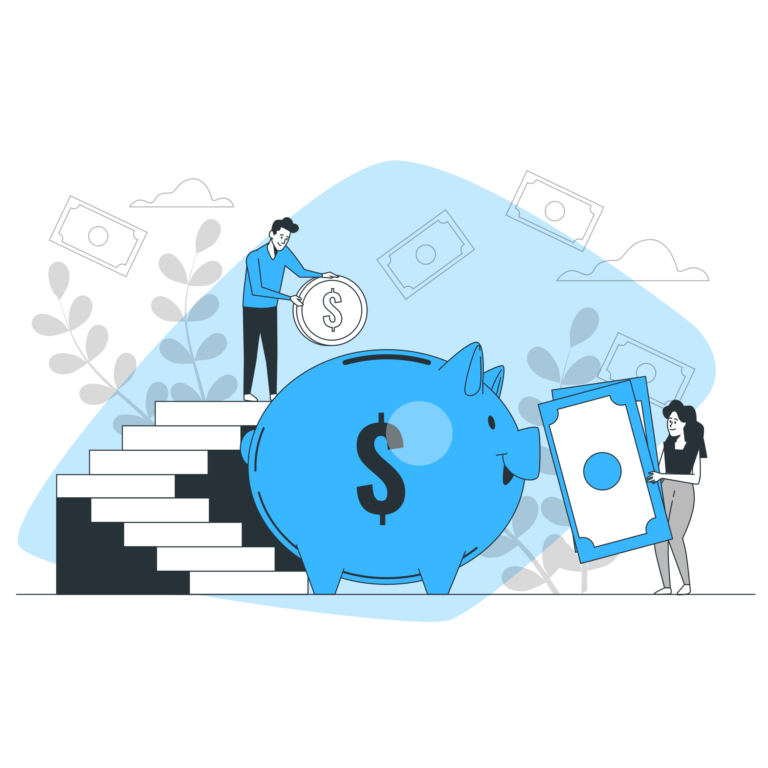What is VAT?
Introduction
In this article we will discuss the basics and particularities of Swiss VAT.
VAT (value-added tax) is a direct tax on consumption. In principle, it applies to all goods and services consumed or used in Switzerland.
It is the final consumer which bears the VAT. But it is up to companies to collect this tax and pay it to the Federal Tax Administration.
Excluded activities
Some activities are excluded from the scope of VAT, mainly medical, educational, cultural, insurance, financial and residential rental activities. For more details see Art.21 al.2 LTVA.
Depending on the amount of turnover achieved, a company may or may not be exempted from VAT liability. Different methods are available to the company, including the effective method or the net tax liability method (NTR).
Swiss VAT comparison in Europe

Swiss VAT liability
Once subject to VAT, all sales and services of a company will be subject to VAT. M
VAT is calculated on the amount excluding VAT of the services. The company's invoices will have to comply with the conditions laid down by Art. 26 LTVA as regards the form and information contained therein.
The form requirements for an invoice are as follows :
- Full contact details of the supplier and its VAT number
- Customer details (name, address)
- Invoice date or date of performance if not identical
- Description of the service, type, purpose and volume of the service
- The amount billed
- The rate applied to the benefit (the amount is not sufficient)
Compulsory liability
Anyone who runs a business, even a non-profit one, and regardless of the legal form, is in principle liable to pay VAT in Switzerland.
It should be noted that the tax liability is not compulsory for companies that generate less than CHF 100'000/year from taxable services in Switzerland.
In order to determine the CHF 100,000, the worldwide revenues of the company must be included in the calculation, as they are decisive for the tax liability. This can be for example :
- All deliveries of goods and services taxable on Swiss territory
- All deliveries of goods and services exempt according to Art.23 LTVA
- Benefits excluded from the scope of the tax according to Art.21 al.2 VAT.
- Amount determining the VAT liability
Voluntary VAT liability
Art.11 LTVA provides that any person/company carrying out an entrepreneurial activity may voluntarily register for Swiss VAT.
- For a minimum duration of at least one fiscal period
- No minimum threshold (turnover)
- Voluntary liability is possible during the year
Opting for services excluded from VAT
Art.22 al.1 LTVA provides for a voluntary VAT liability for persons exercising an activity excluded from the scope of taxation according to Art. 21 LTVA.
However, the option is not available for the activities of :
- Insurance field
- Financial sector
- Gambling area
- Real estate if the object is used or intended to be used exclusively for residential purposes
Start of VAT liability
Company with its headquarters, domicile or permanent establishment on Swiss territory
At the beginning of the entrepreneurial activity
Exemple d'assujetissement 1
Founding of ABC Enterprise LC
31.12.2022
Does not exceed the CHF 100,000 threshold in the first year
31.12.2023
During the year 2023 the 100'000 CHF mark is exceeded
01.01.2024
ABC SA will be subject to VAT from 01.01.2024.
Exemple d'assujetissement 2
Founding of ABC Enterprise LC
31.03.2022
It generates more than CHF 25,000 in taxable benefits
01.04.2022
It decides to register to VAT from the 1st day of the 4th month
01.04.2022
It takes care and modifies its invoices in order to charge VAT
It is important for Swiss companies to evaluate their sales after 3 months in business. If sales exceed 25,000 CHF the company can choose between:
(1) register for VAT from the first day of business. This will enable the company to reclaim the VAT paid during this period, but it will also have to pay VAT on its taxable sales in Switzerland during the first 3 months of business.
(2) Start charging VAT after the 1st day of the 4th month. In this way, the company avoids having to pay VAT on sales on which it has not been able to deduct VAT, but will not be able to reclaim VAT on purchases and investments made during the first 3 months.
End of VAT liability
Company with its headquarters, domicile or permanent establishment on Swiss territory
on the cessation of the entrepreneurial activity
In case of liquidation
on closure of the liquidation proceedings
All other companies
at the end of the calendar year in which they last provided services in Switzerland
If the taxpayer's sales no longer reach the decisive amount of CHF 100,000 and there is reason to assume that the relevant sales figure will not be reached in the following tax period either, the taxpayer must announce this.
This can be done at the earliest by the end of the tax period in which the qualifying amount is likely to be reached. The waiver will take effect from the following tax period. If he fails to do so, he is deemed to have opted to remain subject to the tax on a voluntary basis.
It is important to note that, in the event of termination of VAT liability, a retroactive calculation for all purchases/investments on which VAT has been reclaimed. This is due to the fact that these objects will change from being used for business purposes to being used for private purposes, and a correction will therefore have to be made to the input tax deduction (CORDIP).
Taux de TVA en Suisse en 2025
The VAT rates in Switzerland are as follows :
8.1% Standard rate
Art.25 al.1 LTVA
This is the rate that is generally used in the provision of services and the sale of goods.
For example, the following are subject to the 8.1% rate: Tax advice, Painting services, Meals taken on the premises, Any sale of goods or services not subject to the 2.6% or 3.8% rates.
2.6% Reduced rate
Art.25 al.2 & al.3 LTVA
This rate applies in cases explicitly covered by the law, including :
- Foodstuffs (except alcoholic beverages)
- Medicines - Art.49 OTVA
- Newspapers and magazines without advertising character - Art.50 OTVA
3.8% Special rate
Art.25 al.4 LTVA
This rate applies to the accommodationsector. Accommodation includes breakfast, even if billed separately.
How to register for Swiss VAT?
- Extract from the Trade Register and your IDE number
- For simple partnerships not registered in the commercial register, your social insurance number
- First-year sales or sales outlook
- Tax representative for foreign companies
Once the various forms have been completed and sent in, you may be contacted by the FTA before being registered for VAT.
You will then receive confirmation of your registration and your first VAT deduction code directly at home.
Where can I find the VAT number of another company?
Are you looking for a company's VAT number to find out whether it is subject to VAT or not? You can visit the official website of the Swiss Confederation, in the IDE register.
Just type the company name in the search bar, click on the company name, go to the bottom of the page to "VAT data" and see if the company has a VAT number.
The VAT number is the company's CHE number with VAT at the end.
Example : CHE-000.000.000 VAT
Completing a VAT statement
As a VAT-registered taxpayer, you are required to submit a quarterly or half-yearly settlement of the services provided. You can choose between two methods.
As a general rule, billing is carried out using the effective method.
The Swiss VAT statement can be filed directly online.
Effective method
This method allows you to recover the VAT paid on your expenses and investments from the tax you have to pay on the services provided.
This statement must be made quarterly.
Example of effective method calculation
- CHF 10,000 (excl. VAT) of taxable sales and CHF 5,000 (excl. VAT) of purchases with deductible VAT from 01.01.2024 to 31.03.2024
- CHF 810 VAT due
- 405 CHF of deductible VAT
- CHF 405 to the Federal Tax Administration
Remarks :
The tax on acquisitions has no impact with the effective method.
Import tax paid at customs is also recoverable.
Method Net tax debt rate
Example of calculation method net tax debt rate
This method does not allow you to reclaim VAT. But it is relatively simple to apply. All you have to do is take your sales figures and multiply them by the rate assigned to you by the FTA according to your activity. (see rate list)
This count must be performed semi-annually.
- Cleaning company, applied rate of 5.9% | Sales: CHF 80,000 (incl. VAT) of taxable sales from 01.01.2022 to 30.06.2022
- CHF 80,000 * 5.9% = CHF 4,720 VAT due to the FTA
To benefit from this method two conditions apply:
(1) Annual sales do not exceed CHF 5,005,000.
(2) The VAT amount calculated with the net tax liability rate does not exceed CHF 103,000.
Remarks :
You can use a maximum of 2 rates. For example for a restaurant that sells take-away and on-site services or a garage that does mechanics and bodywork.
Acquisition tax is due at the normal rate, if you use services from abroad you will have to pay tax on this service.
The tax on imports is not recoverable either.
VAT payment and deadlines
You have 60 days after the statement period date to submit your VAT statement and pay the VAT due using the QR-invoice located on the second page of the summary sheet.
Once the deadline has passed, a moratorium interest is due on the amount of VAT due.
A deadline request is possible. This saves you from having to request a provisional advance and from having to issue any reminders, but not from having to charge interest on arrears.
This principle also applies to the FCA, which is obliged to reimburse you within 60 days after submission of your VAT statement, failing which it owes you default interest from the 61st day.
Advantages of registering for VAT
- Recovery of VAT on your investments and expenses
- Gain credibility with professional clients
Disadvantages of registering for VAT
- Rate increase (at least for individual customers that do not recover it)
- Increased administrative burden
- VAT issues (exempt or not; end of tax liability; CORDIP; REDIP; PASM)
Acquisition tax: what is it?
The acquisition tax puts Swiss and foreign companies on an equal footing.
Effective settlement method
The acquisition tax must be reported under number 381 of the VAT statement as tax due and the input tax can be reclaimed. The transaction is therefore not relevant.
Rate settlement method for net tax debt
The acquisition tax must be declared under number 381 of the VAT statement as tax due and the input tax cannot be reclaimed. The transaction ends with the obligation to pay VAT at the rate that would be applied to the same service in Switzerland.
Companies not subject to VAT
The acquisition tax is indeed due if you exceed the annual deductible of CHF 10'000 for services from abroad. Once the threshold has been exceeded, the taxpayer must declare the amount to the FTA within 60 days after the end of the calendar year.
Benefits subject to acquisition tax
- Consulting services from abroad (e.g. legal, tax advice, etc.)
- Services from abroad (e.g. visual creations, website, etc.)
- Advertising services from abroad (e.g. Google, Facebook, etc.)
Services that are excluded from taxation under Art. 21 VAT Act or exempted from taxation under Art. 23 VAT Act are not subject to acquisition tax.
Import tax: how does it work ?
When importing goods into Switzerland by a Swiss company, the importer must pay VAT.
Role of the Federal Customs Administration (FCA)
VAT on imports is levied by the Federal Customs Administration (FCA). The main aim of this measure is not to disadvantage Swiss companies who make their purchases in Switzerland, and therefore pay VAT, compared with those who import goods from abroad.
VAT rates on imports
Le taux TVA appliqué lors de l’importation est le même que celui qu’on appliquerait si ce bien était acheté en Suisse. Il peut être normal ou réduit pour les produits alimentaires, médicaments, etc.
VAT calculation
VAT is calculated on the basis of the price invoiced by the supplier of the goods, plus costs incurred up to the destination in Switzerland. Foreign VAT is not taken into account in this calculation, provided it is clearly indicated on the invoice or in the sales contract.
Proof must of course be provided to the customs office at the time of import (e.g. invoice, sales contract, etc.). In addition, the importation of certain goods is tax-free, see Art.53 LTVA.
For the effective settlement method
Import taxes can be recovered.
Condition: The importer is in possession of the VAT tax ruling from the Federal Customs Administration, issued in the importer's name and address.
For the net tax debt rate settlement method
The import tax cannot be recovered for the taxpayer deducting the VAT according to the net tax liability rate the import tax remains an expense.
For companies not subject to VAT
For those not subject to VAT, the import tax remains a burden.
Our tax advice on VAT
It is important to make the right choices at the beginning of the entrepreneurial activity, especially with regard to :
- Subjection
- Benefits agreed or received
- The choice of the effective settlement method or net tax liability rate.
These decisions will have a direct impact on your business. Being accompanied by a specialist from the beginning avoids making mistakes. Do not hesitate to contact TaxFlow.
In addition, depending on the activity you carry out and the current state of your business, various VAT-related issues will come into play. The respect of the VAT rules will save you from penalties in case of control.
FAQ - VAT reconciliation
Pour remplir un décompte TVA, vous devrez suivre les directives suivantes en fonction de la méthode choisie.
Méthode effective:
- Le décompte doit être effectué tous les 3 mois
- Il faudra soustraire la TVA déductible à la TVA due
- Si le montant est positif, vous avez une « dette » envers l’AFC
- Si le montant est négatif, l’AFC a une « dette » envers vous
Méthode du taux de la dette fiscale nette:
- Le décompte est à effectuer tous les 6 mois
- Vous devrez appliquer le taux assigné à votre activité par l’AFC aux prestations imposables
Ajouter la TVA :
Montant TTC = Montant HT × (1+taux de TVA)
Soustraire la TVA :
VAT = (TTC x taux de TVA) / (1 + taux TVA)
Taux : Normal 8.1 %, réduit 2.6 %, spécial (hôtellerie) 3.8 %.
Vous devrez simplement inscrire votre entreprise au Registre du commerce. Un numéro TVA vous sera attribué à ce moment là. Le numéro aura la forme : CHE-123.456.789.
Les résidants suisse ayant effectué des achats en France peuvent obtenir le remboursement de la TVA en scannant leur bordereau de vente à l’exportation à une borne de détaxe PABLO.
Important : Les biens doivent être exportés hors de l’Union européenne dans les 3 mois suivant l’achat.
La TVA sur les services dépend du lieu où le service est considéré comme effectué.
Pour les entreprises, la TVA est due dans le pays du client. Pour les particuliers, la TVA est généralement due dans le pays du prestataire de services.
Les prestataires de services doivent déclarer et payer la TVA collectée selon les règles de leur pays d’enregistrement.





